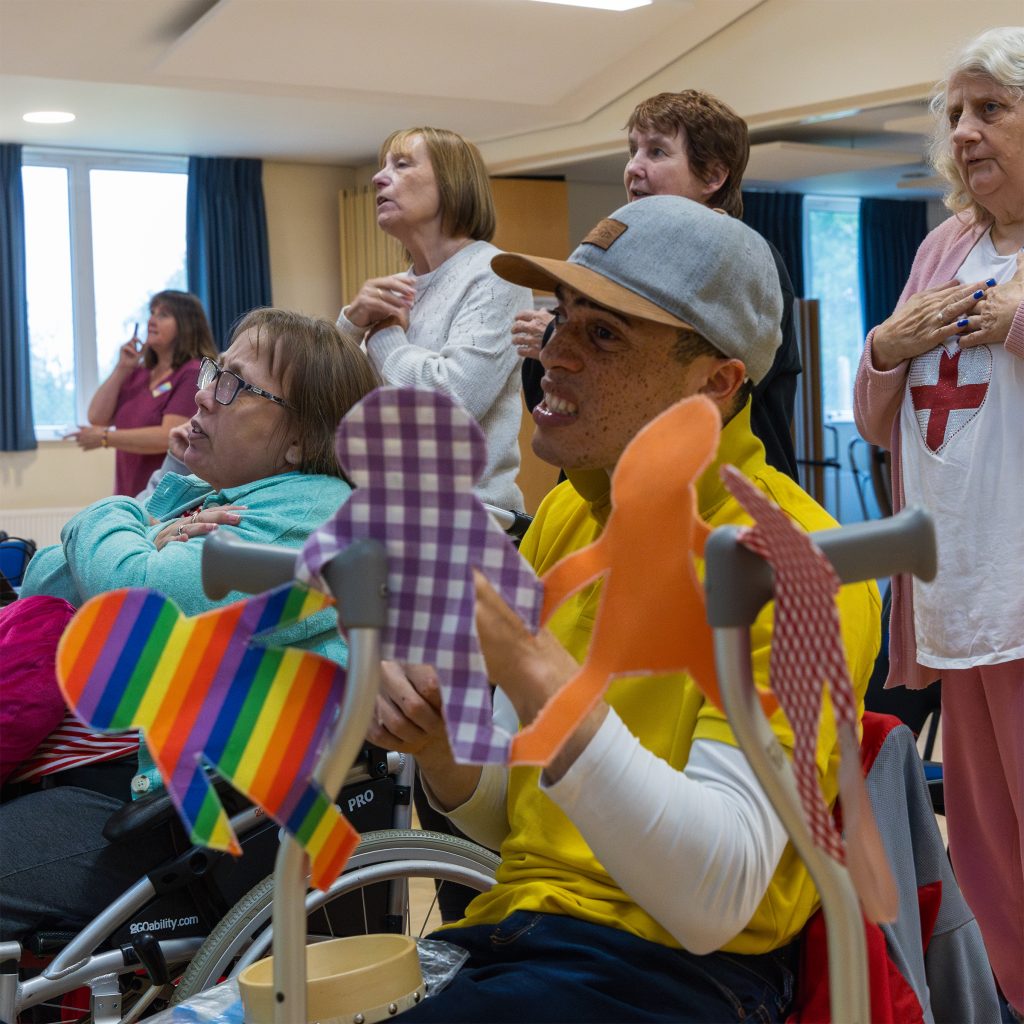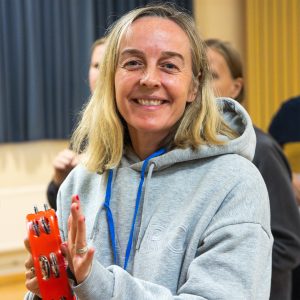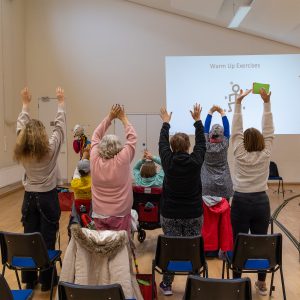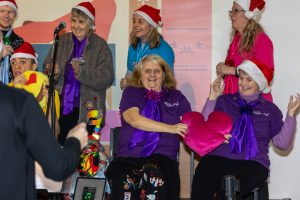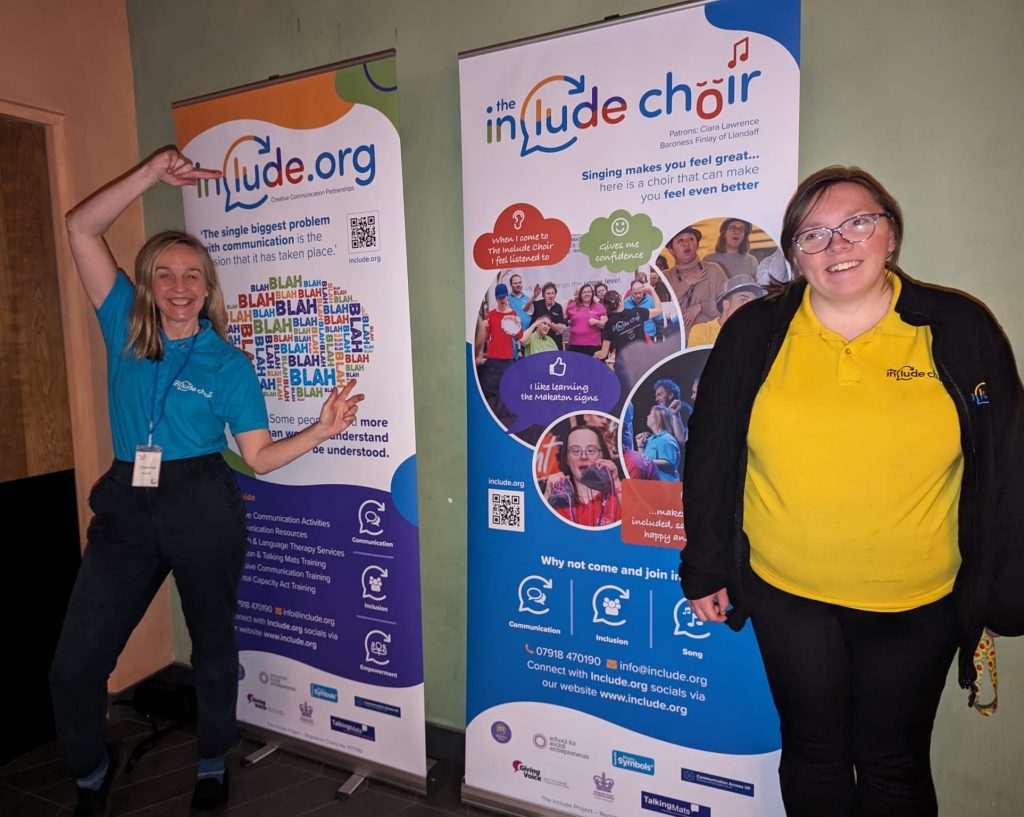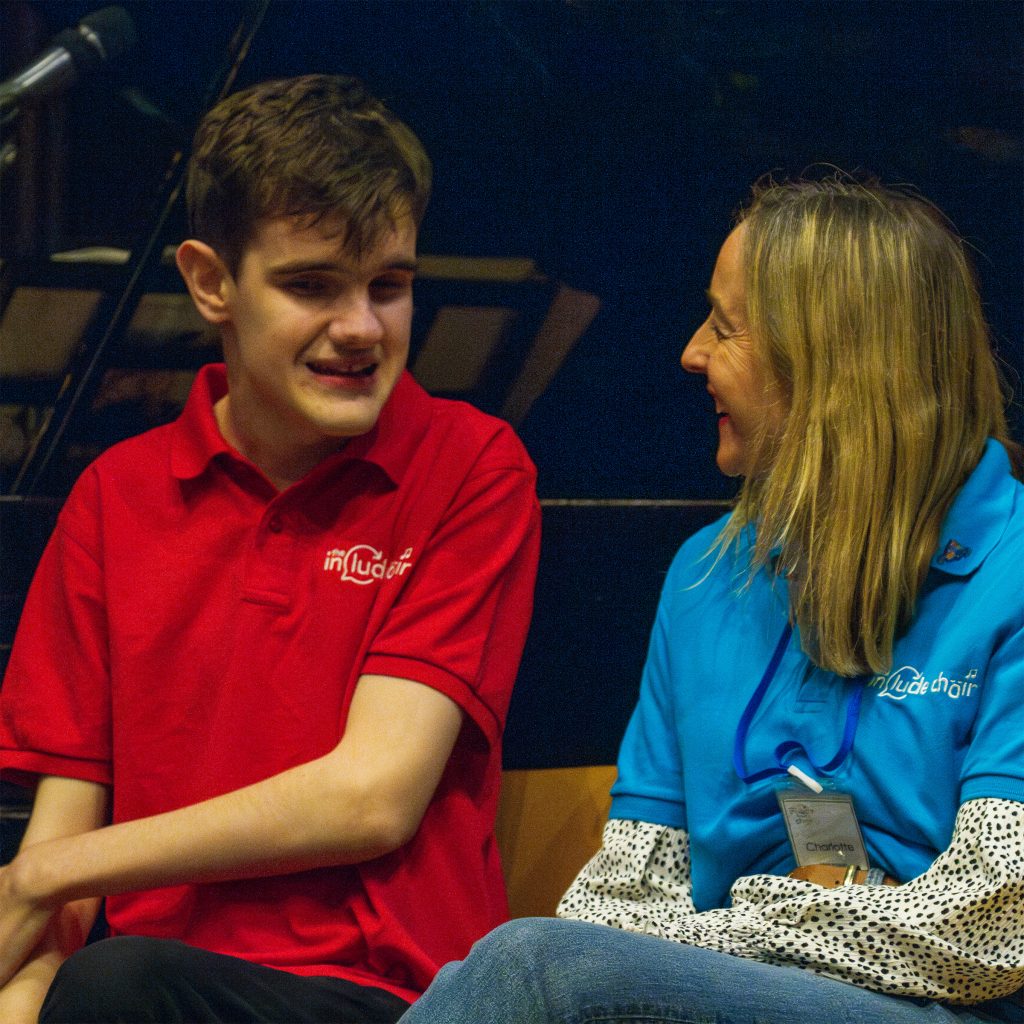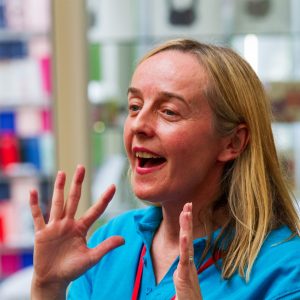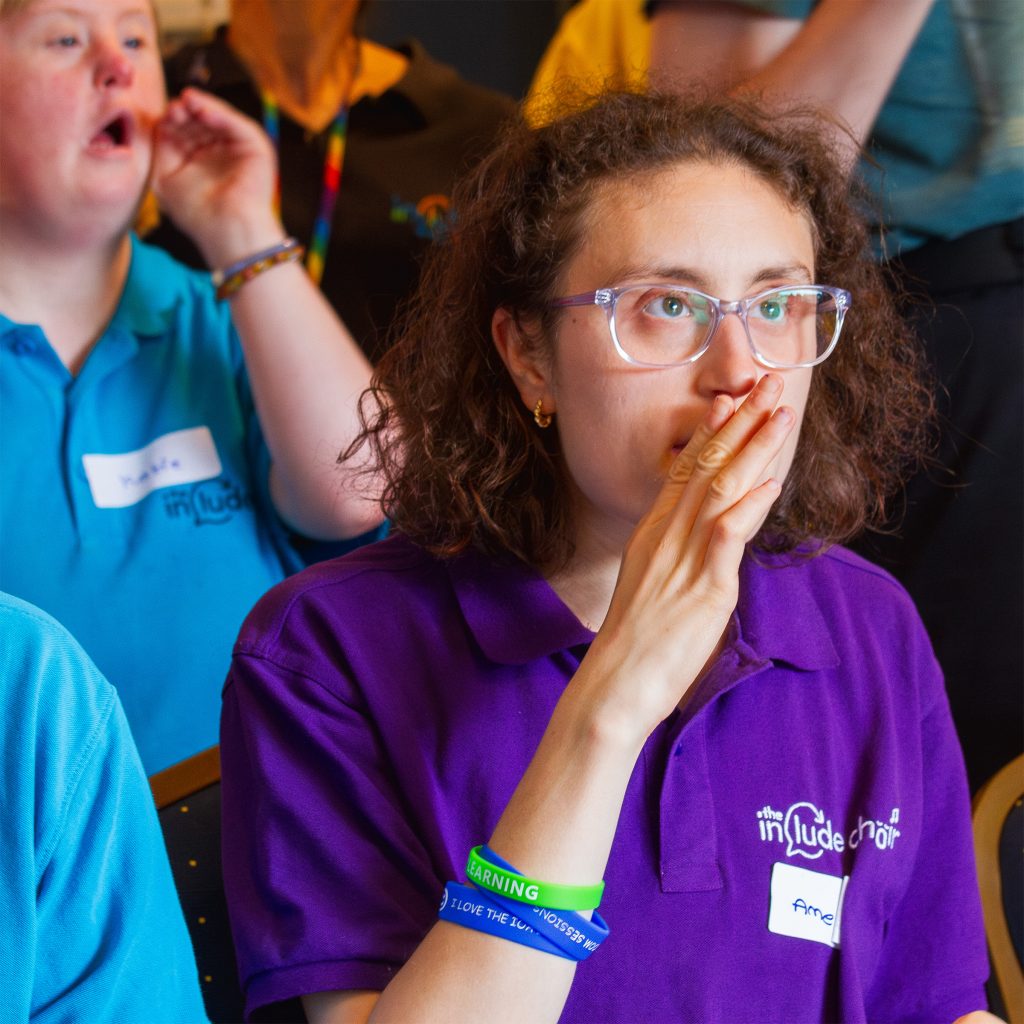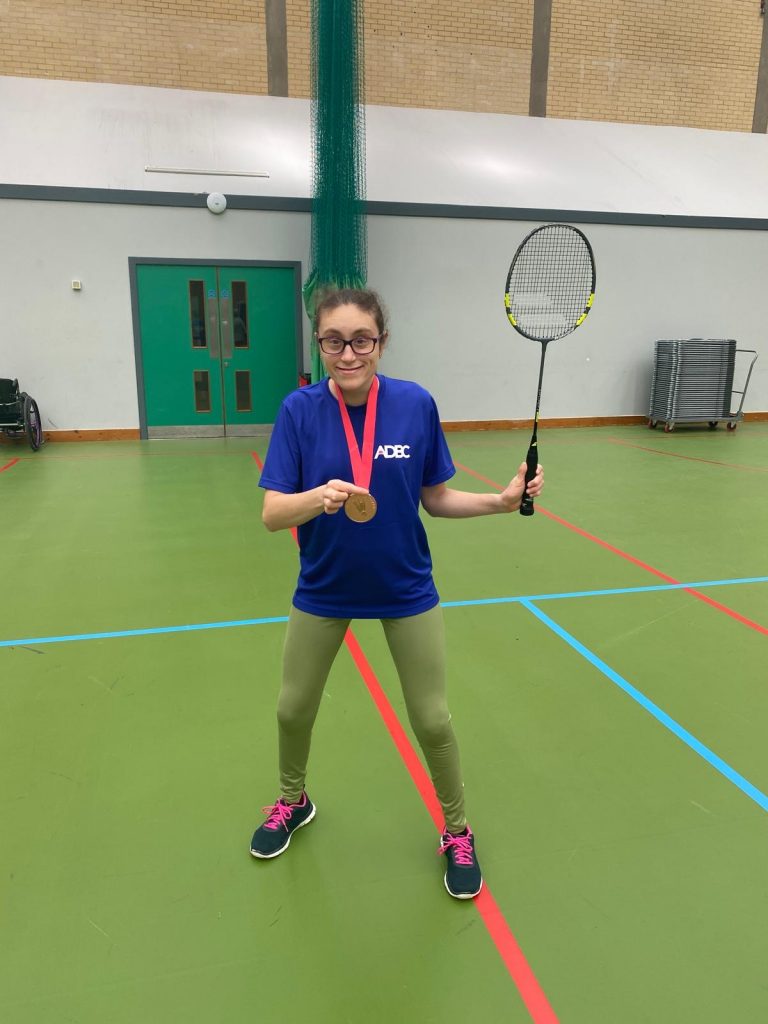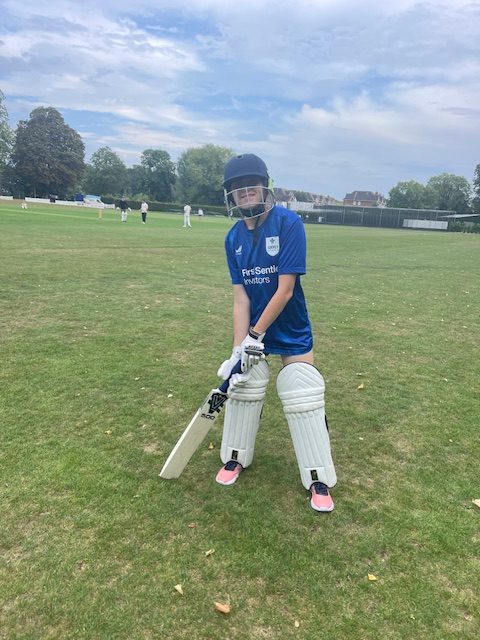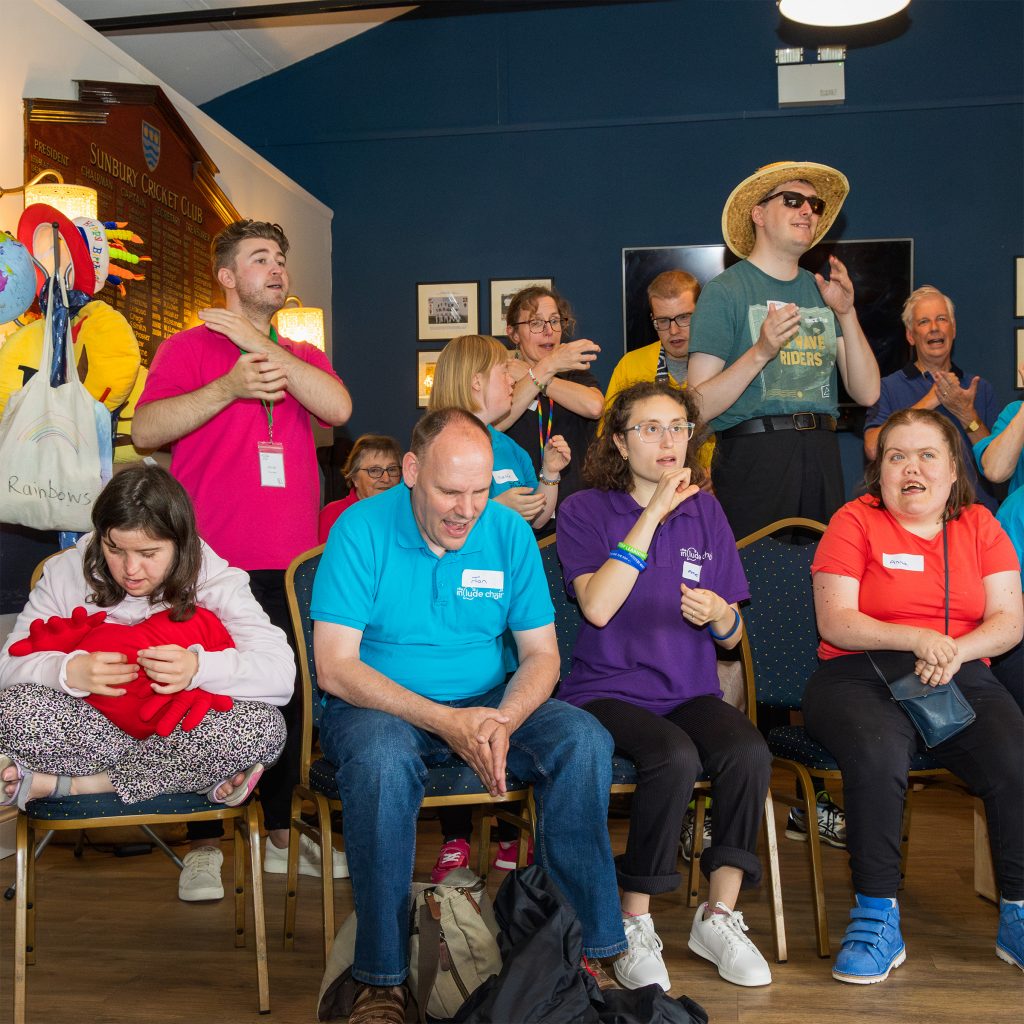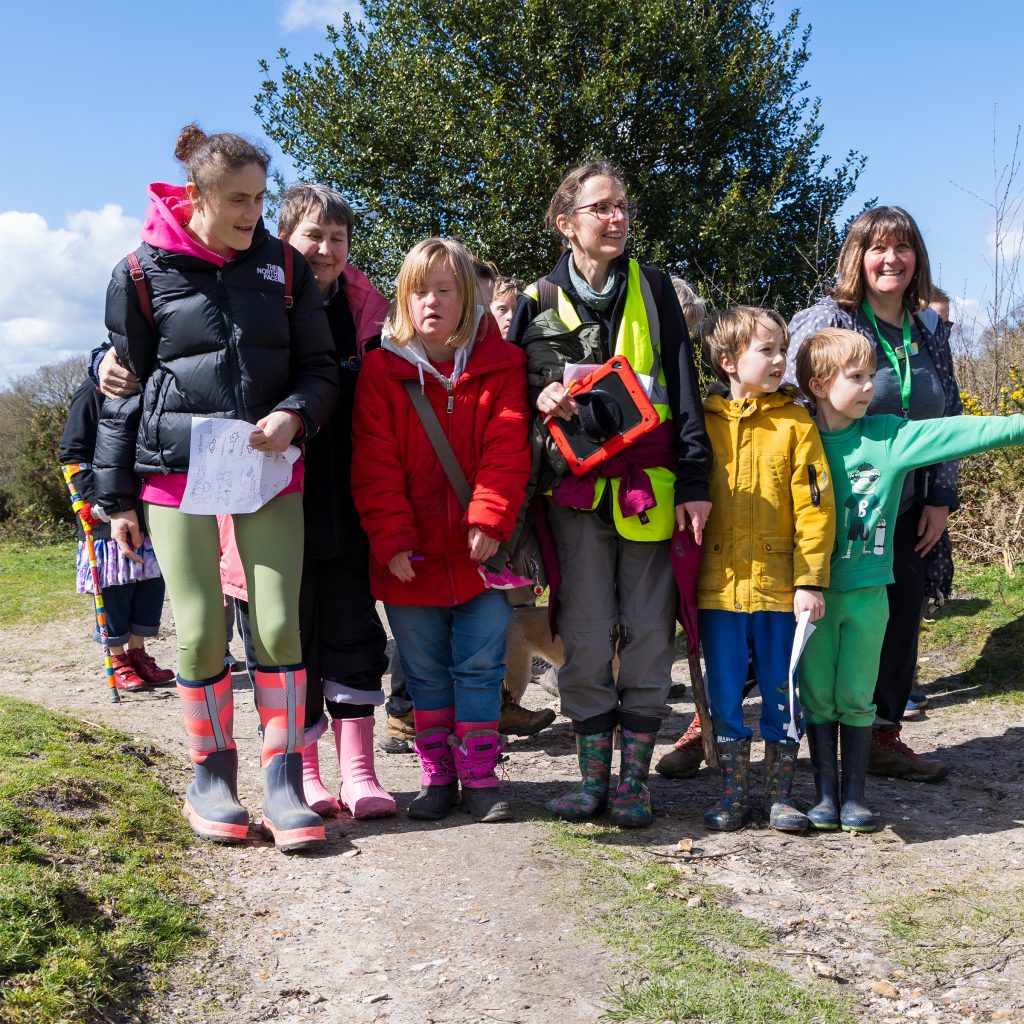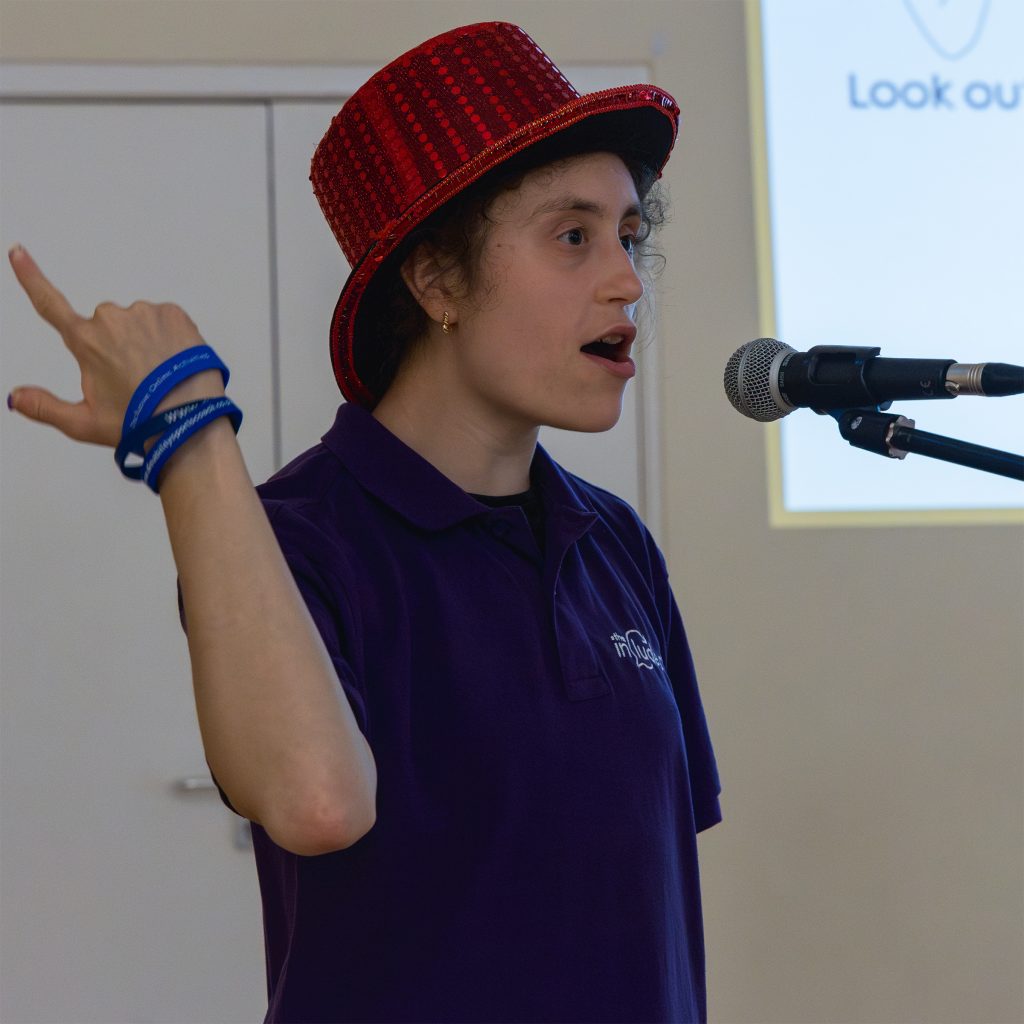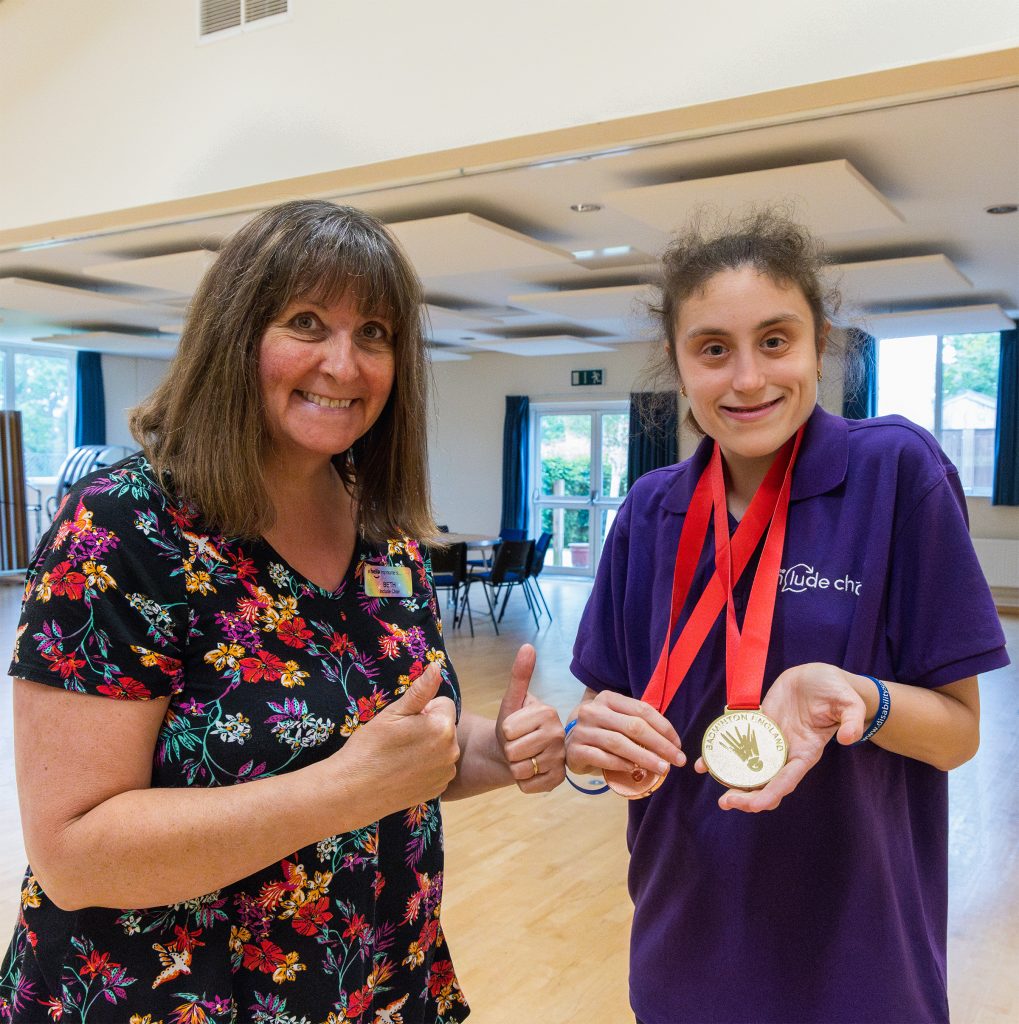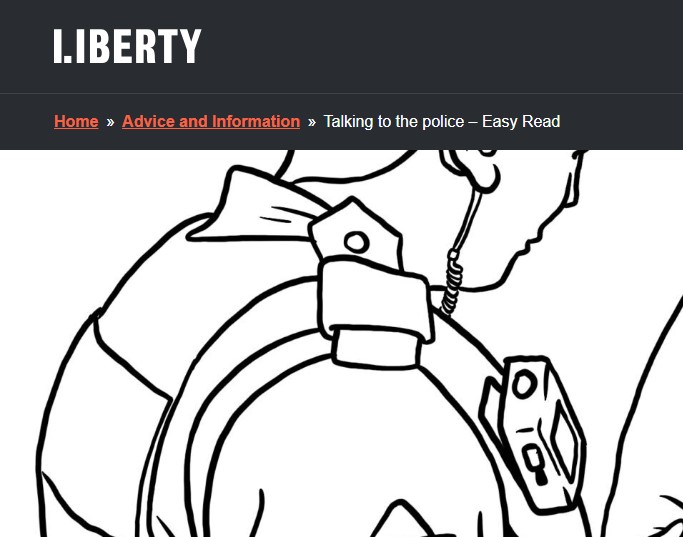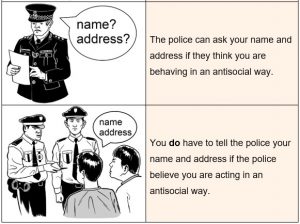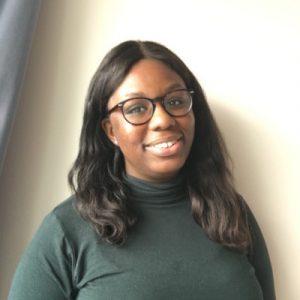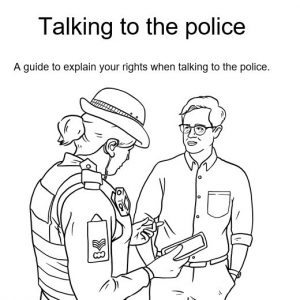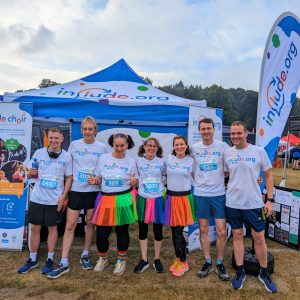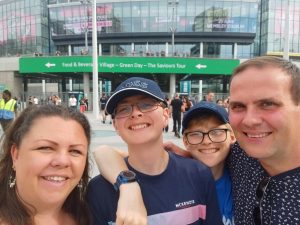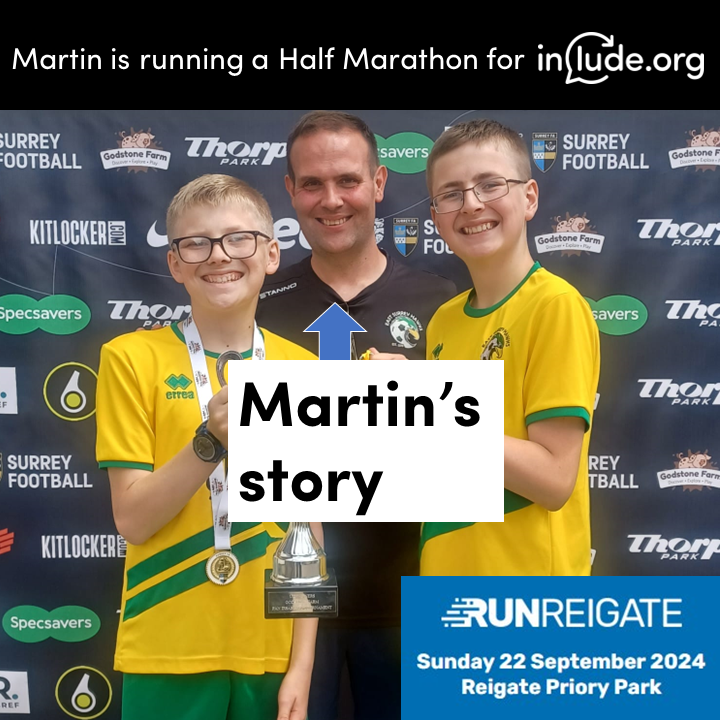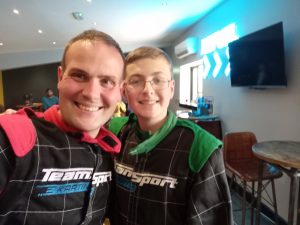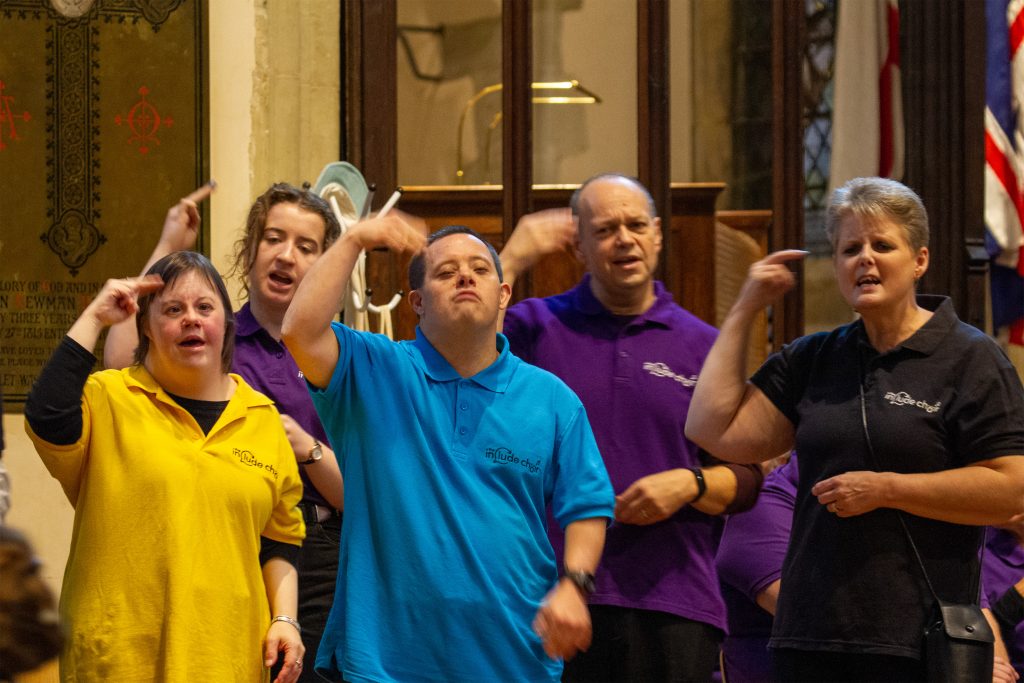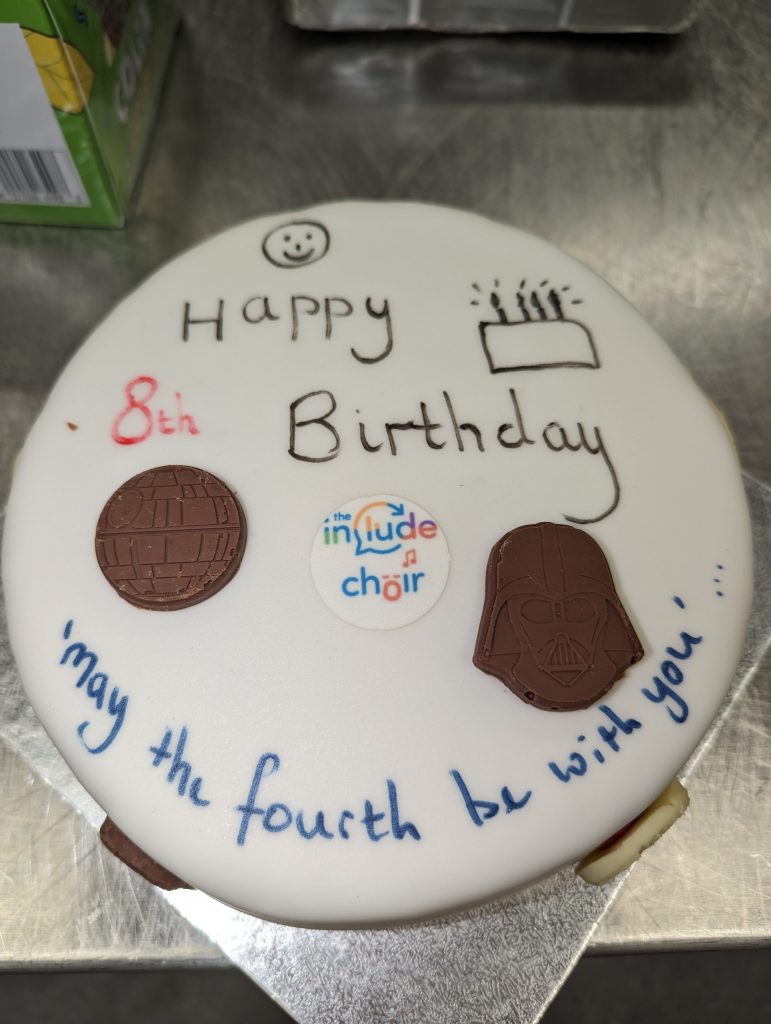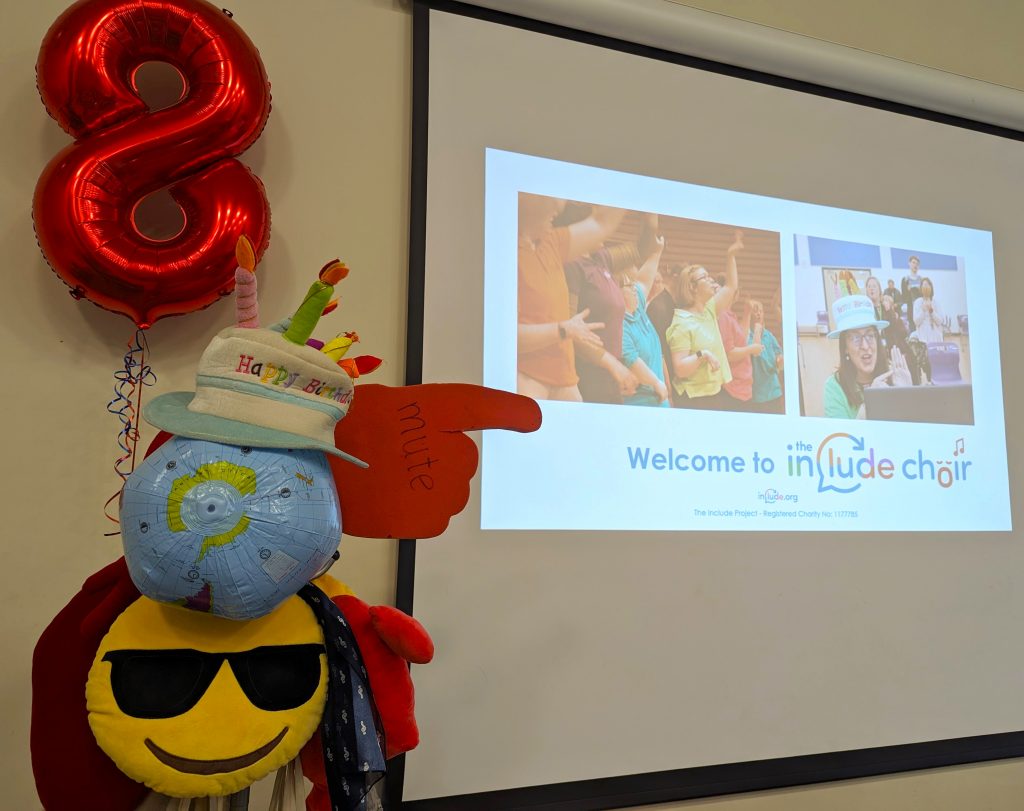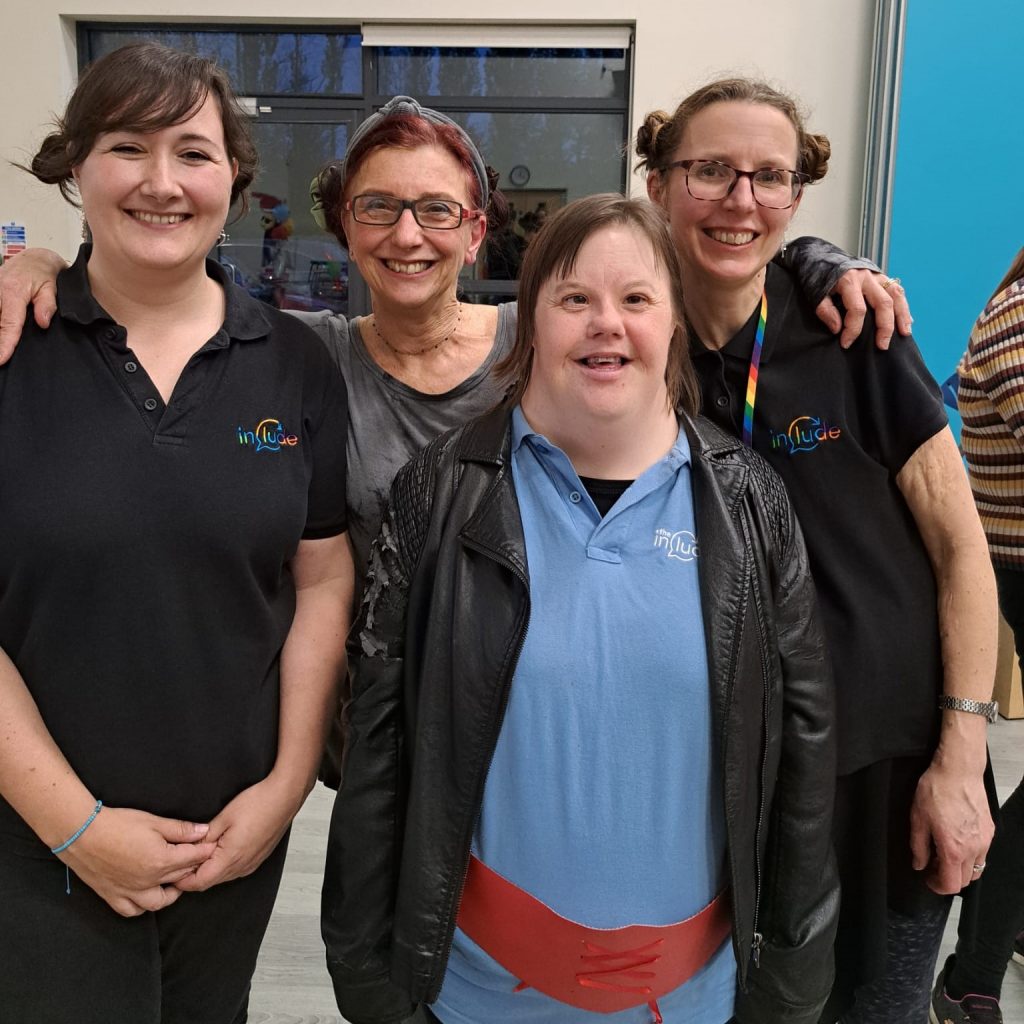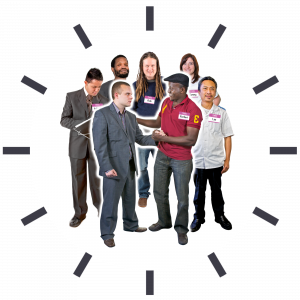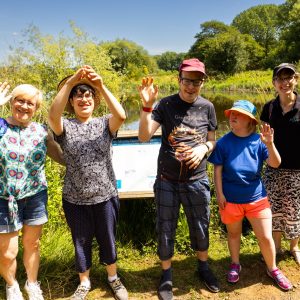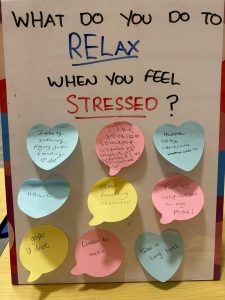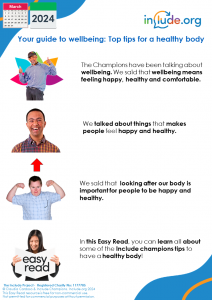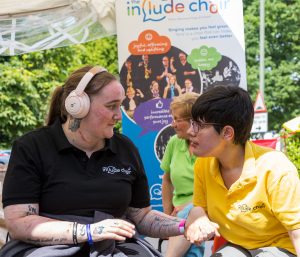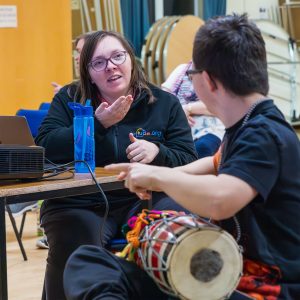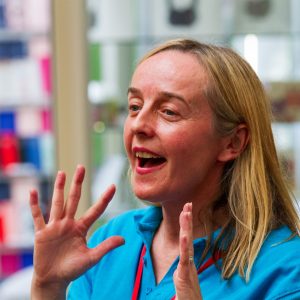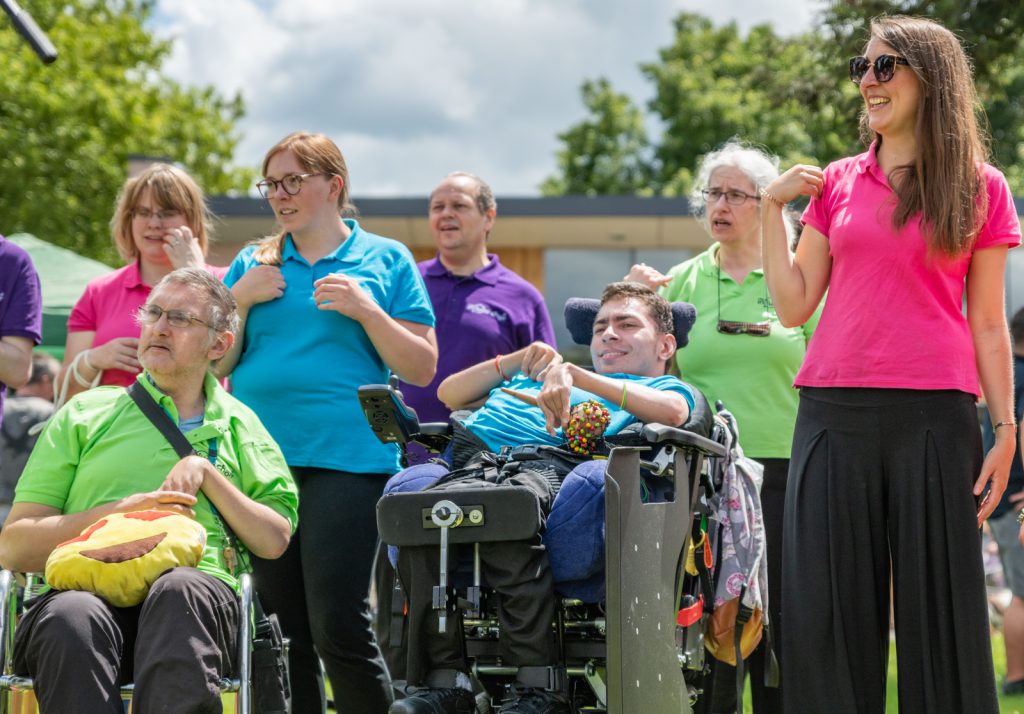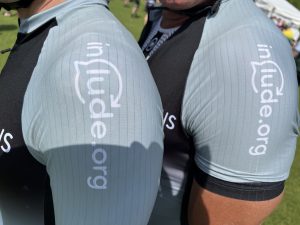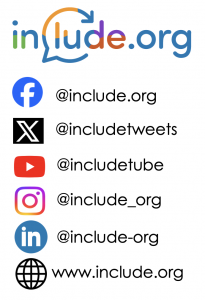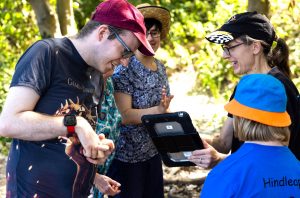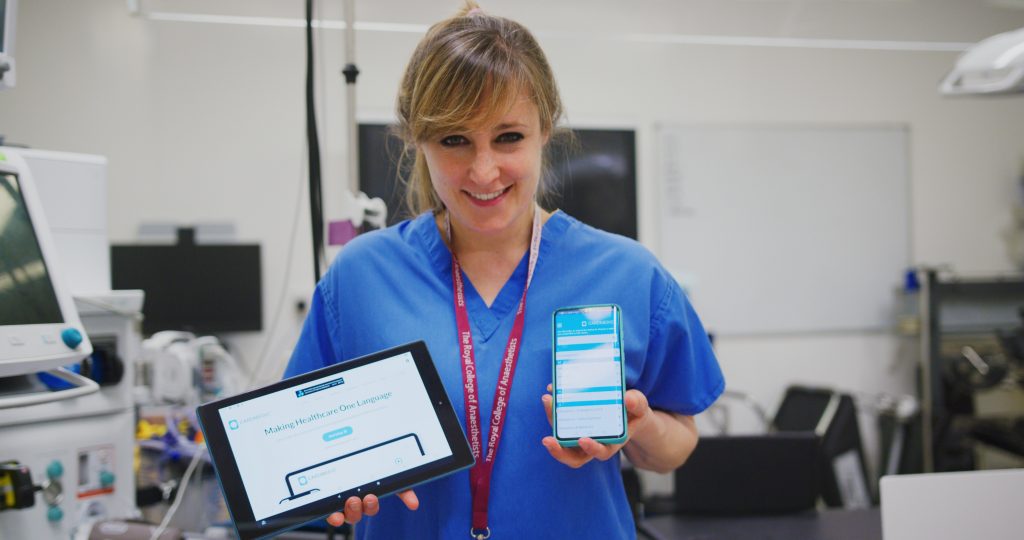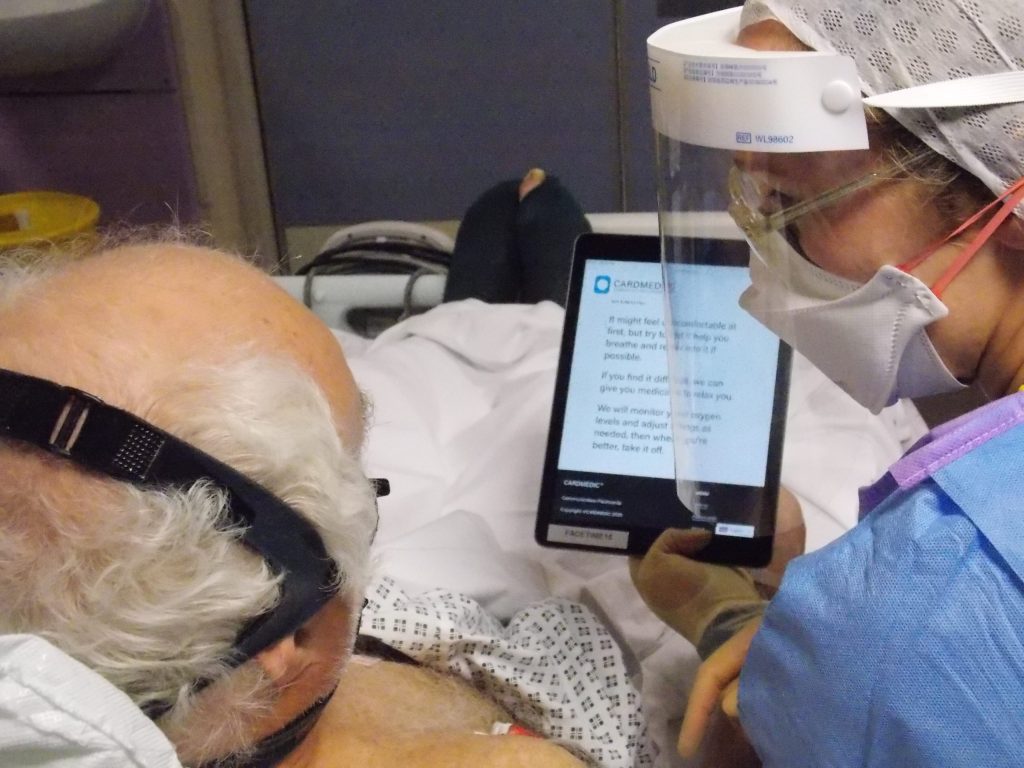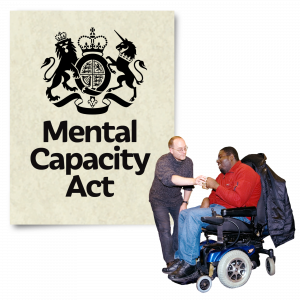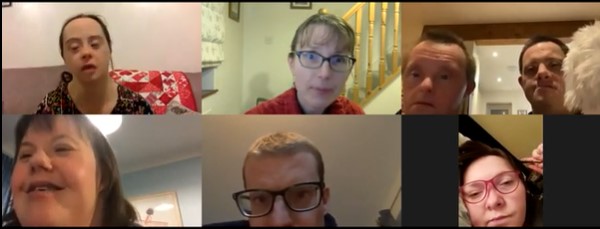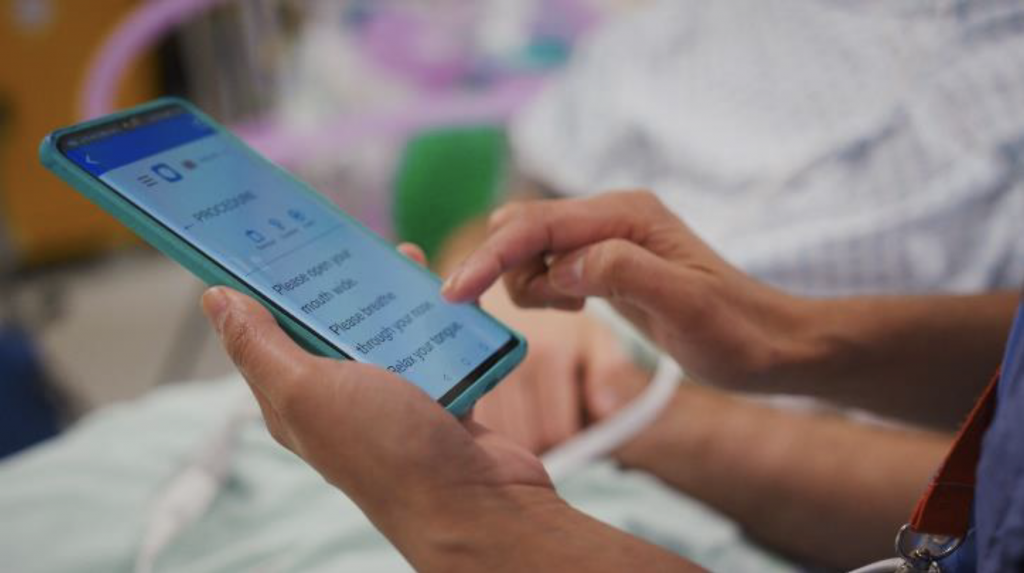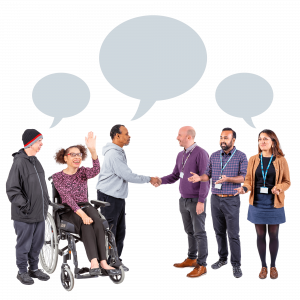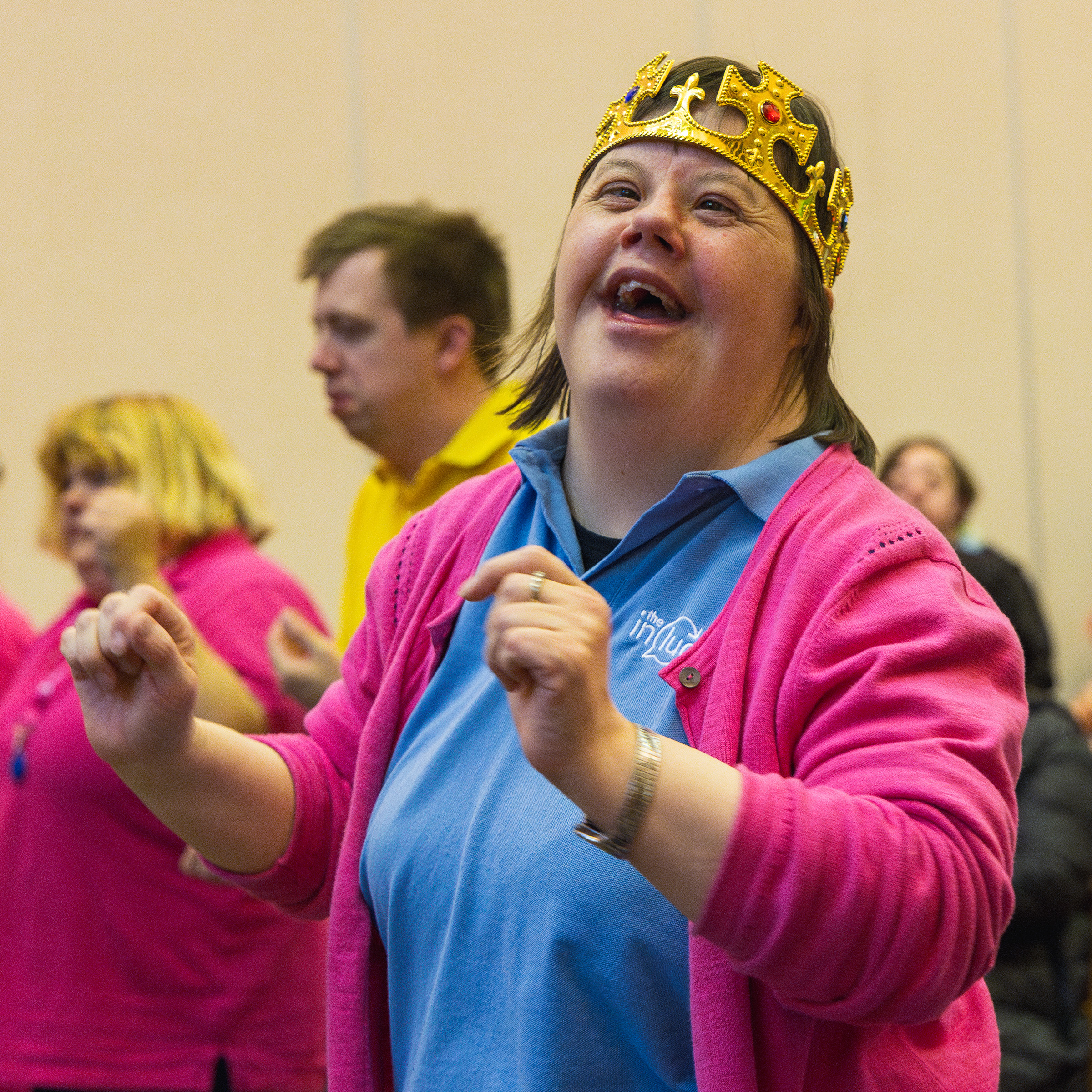
As we approach 2026 – the year Include will turn ten, we wanted to hear from Ellie, one of our founding members.
She reflects on the people and experiences that have been a big part of the last 9 years, and her ideas for 2026.
“It’s important for people to know Include and the choir.
I am the longest member of the choir!” says Ellie.
“Ellie enjoyed coming to the choir right from the outset. She had learnt Makaton signs when she was a toddler and they had helped her speak. She took to singing with signing straight away,” adds Sue, Ellie’s Mum.
Ellie continues; “one of my favourite memories is when it was my birthday and I was with my Mum at Redhill train station the choir was there to sing Christmas carols for people to hear. They all stopped and sang Happy Birthday to me!”
Sue says; “Ellie enjoys the social side of the choir and being part of a group. She likes to help and become involved. They enjoy performing in many settings but we always enjoy Christmas at the Belfry.”
“I am busy, but I always want to go to Include, says Ellie.
I do Bloomin’ Arts in the day on Wednesdays and then Include Choir in the evening. Tuesdays I do Bloomin’ Arts all day, then Include Champions on Zoom in the evening.”
Choir best bits
“I like the month song – I remind Alix to do the month song at choir. It’s a tradition I like.
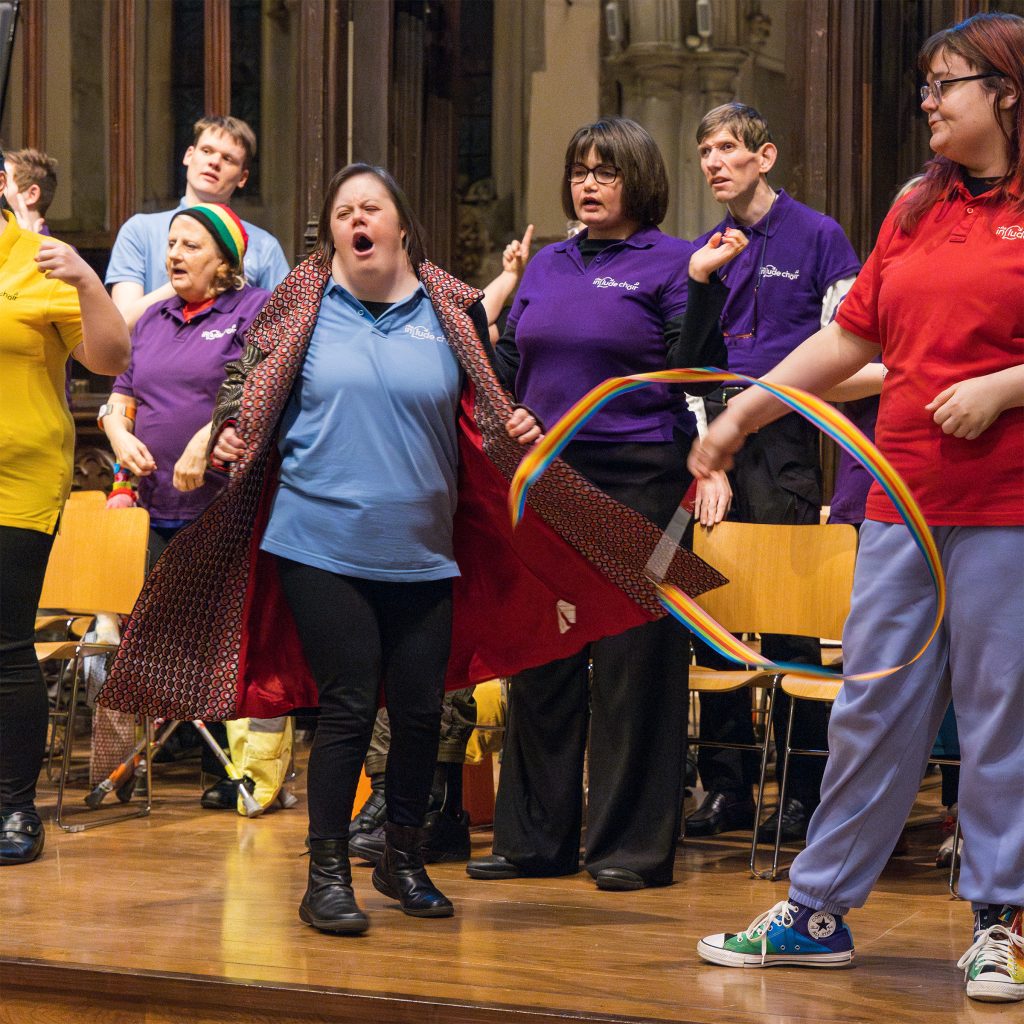
I also like it when we have a choir dress-up theme at rehearsals for something like Halloween.
We used to do a choir newsletter with everyone’s news- I liked that.
One year Alix had song dice – and the sides of the dice had pictures representing different songs on. Like “Make your own kind of music”.
Also, the paperchain song – I like that one and I enjoyed making the giant paperchain in The Belfry shopping Centre. I took my friend and family to see the paperchain in the Belfry.
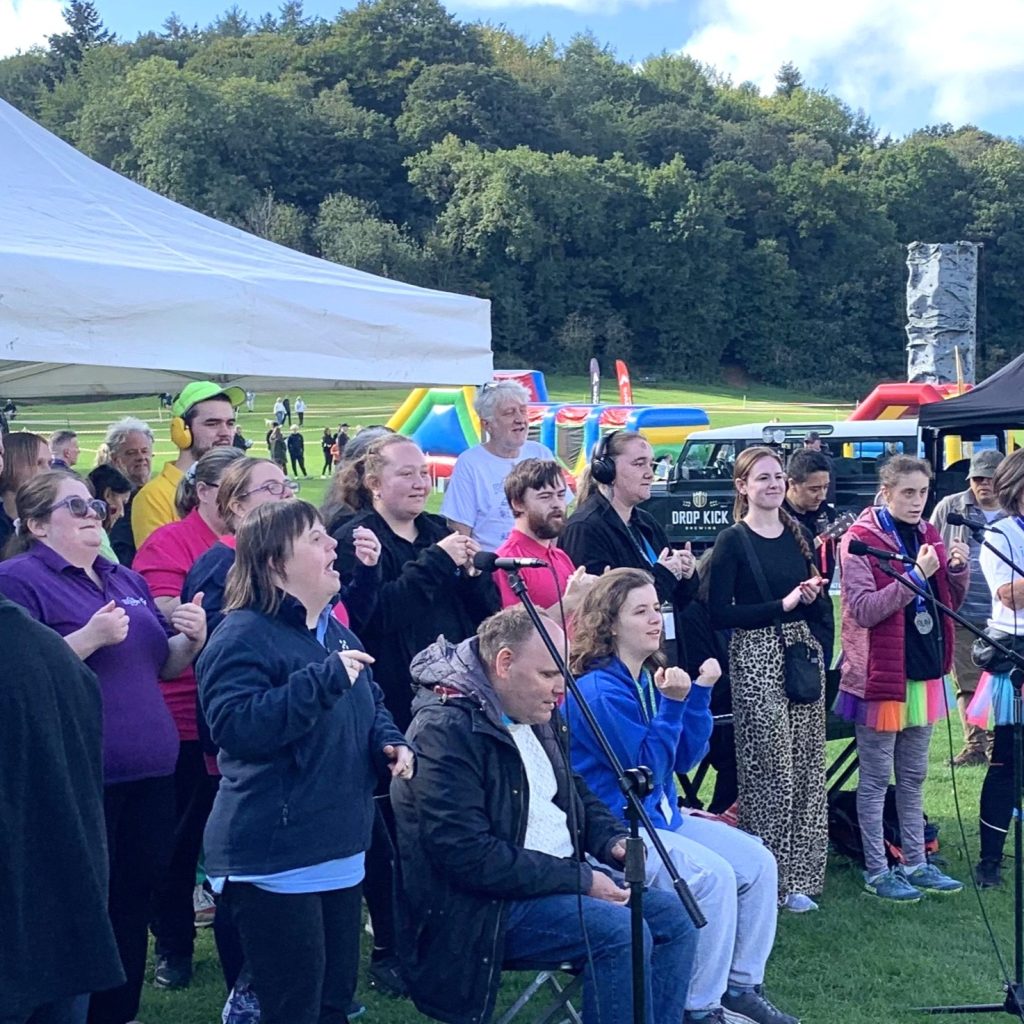
I like performing with the choir. I like Run Reigate – that’s a good one.
I have got loads of memories with Include.”
Sue adds; “Once the Include Choir sang in a concert with two other choirs and I joined the Bletchingley Community choir as a result.”
Never forget
Some choir members can’t come anymore as they have sadly passed away.
“I knew Sai from East Surrey College – we went to college together.
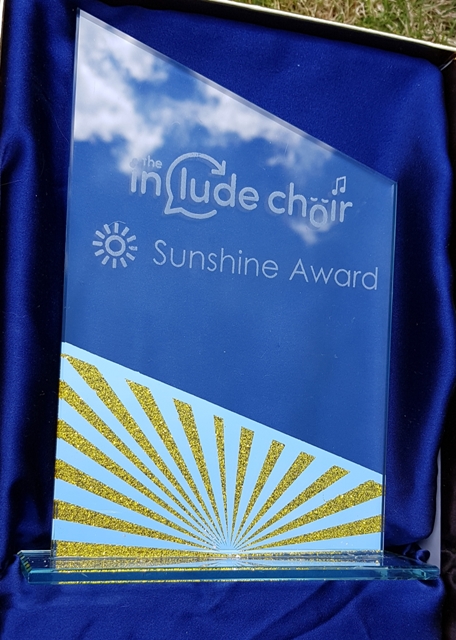
I would sit next to Sai at Choir sometimes. We would talk together sometimes, me and Sai. His parents gave me cuddles, they did, when they came to the choir Big Sing.
One of the ways that we remember Sai is The Sunshine Award in his memory – (an award presented to support staff who join-in and best demonstrate Include’s values), I was proud of the winners of the Sunshine Award for Sai.
Michael passed away too. I used to live with him as well. He asked me out once, and I said yes. Alix put a picture of him on the screen at choir.
It feels like a good thing that Include has had new people join – and seeing people from the Grange at choir as I used to live there.
But I miss Sai and Michael.”
Being a Champion
“I am a Rep for the Include Champions Group .
I like helping people with Champions and I like Easy Reading.
Other information that isn’t Easy Read can be too small – it’s better with big words.
Champions is very good giving ideas how the wider world can be more inclusive.
I like working with people in the Champions group like Philip and Simon. I knew them a bit already from the Mencap committee. I know Josh as well – and we both have nephews. Also, Beth, and there used to be Hannah too.
We do different subjects at Champions – and we have made fun Easy Read stuff too like Halloween and Christmas quizzes, that kind of thing.
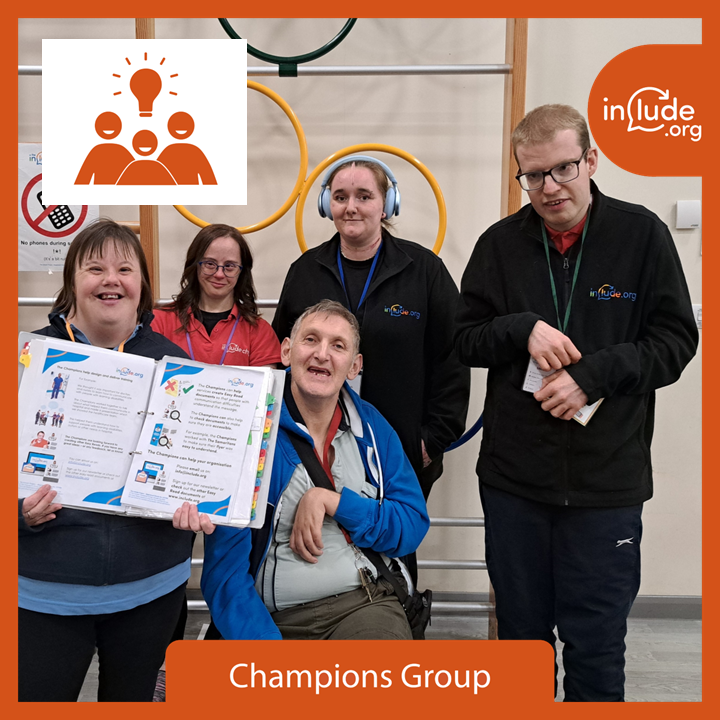
I have a folder with Champions Easy Read information in it at choir.
I like going through the folder and putting things in the right places.
People are able to look at it and sometimes I talk to people at choir about Champions.”
More to be proud of
“I have done so many shows with Bloomin’ Arts – I am the longest member there too.
We are doing Jack and the Beanstalk Panto at the moment. I have also done signing in a play so the audience could see. I did it with Giles (who also goes to Include) on stage too.
I am feeling a bit nervous about doing the G-Live performance coming up because Bloomin’ Arts will be there too and they have never seen me sing with Include before. It’s a first!
I was proud of Include winning the recent Nasen award that I saw in the emails. And the Champions award. And the Queen’s award for volunteers. And the Learning Disability & Autism awards.”
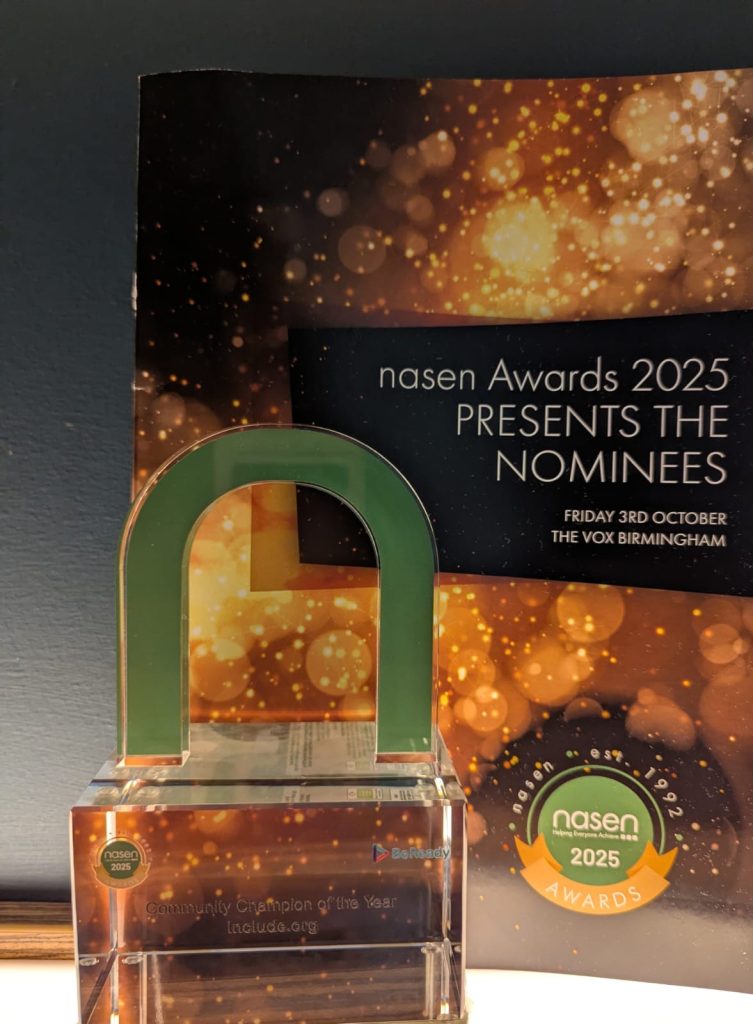
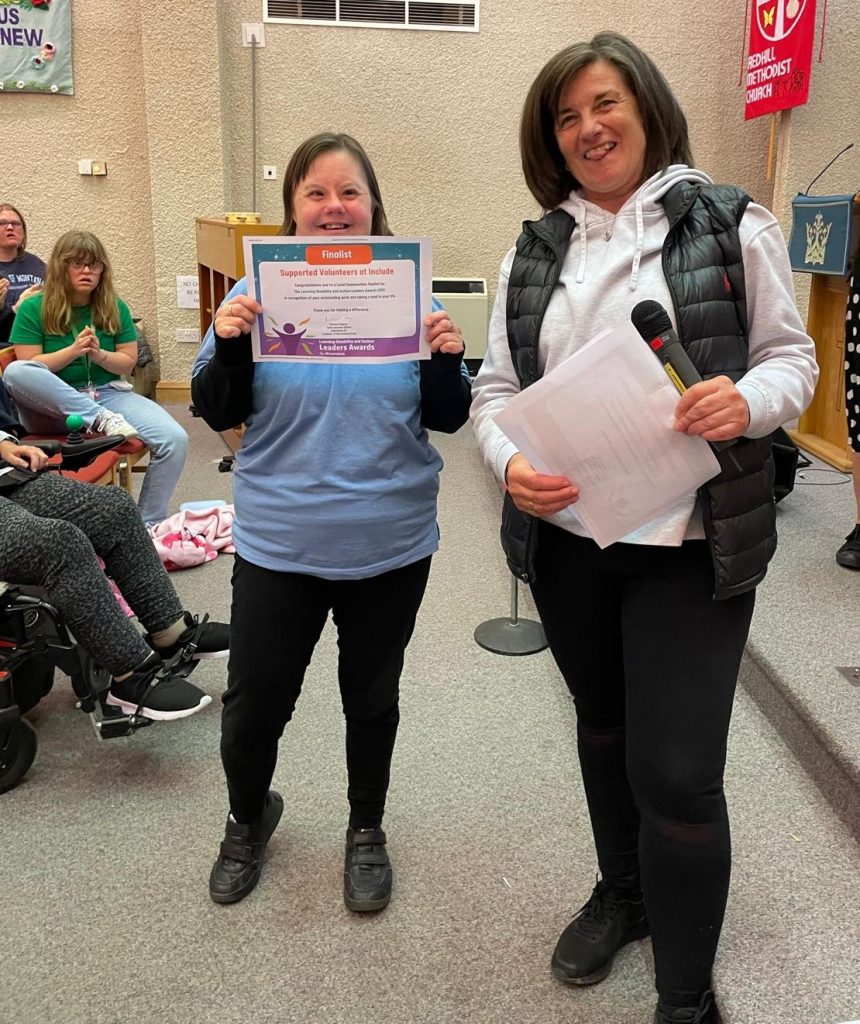
Looking Forward
“When Include is 10 years old next year – I think we should have a party!
And we need to make sure it’s not difficult for people who can’t see (Include has some members who are visually impaired or blind). We’d need space to have a party. And there would need to be cake!
Champions can help involve the wider community too. I did a speech for Alix’s birthday…I could do a speech for the 10th birthday of Include.
Nigel (our Treasurer) is very good on the money side and will have more ideas for the party.
We could do a “Thank you” song for staff too – something like that.”
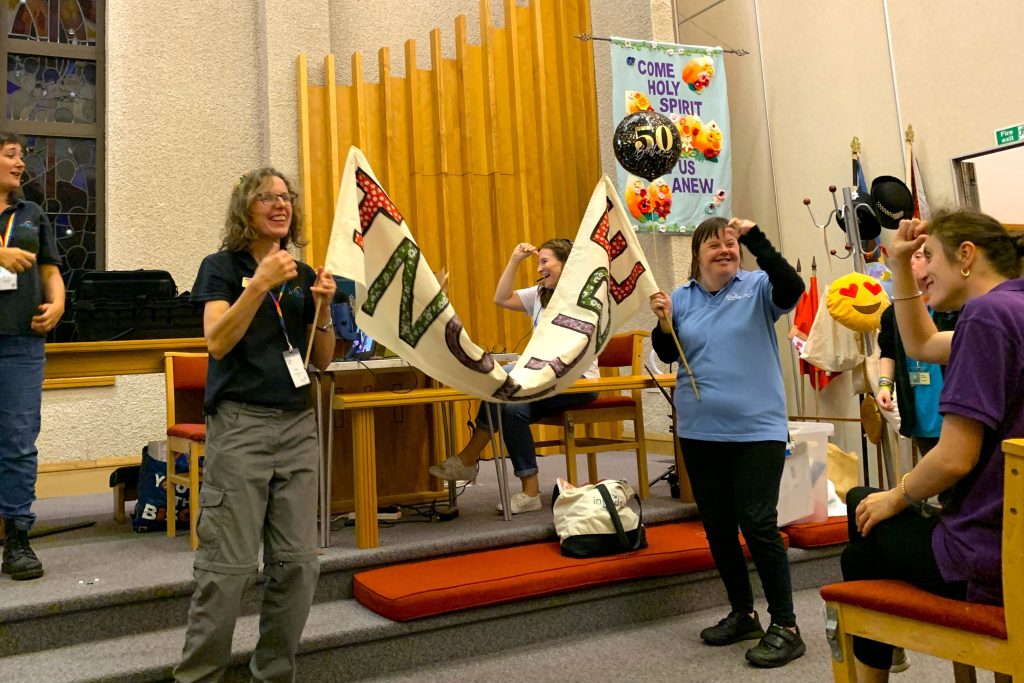
Sue gets in with an early thank you:
“Thank you Alix for your vision and hard work. Ellie is very committed to both Include and The Champions, and her confidence and communication skills have benefitted.
Although the venues Include uses have changed, the essence of the choir has stayed the same, although it has grown in size.”
This feedback is something we hope to take into the next decade of Include…some things change, but the essence remains solid and valued.

Communications, Fundraising and Partnerships Lead


